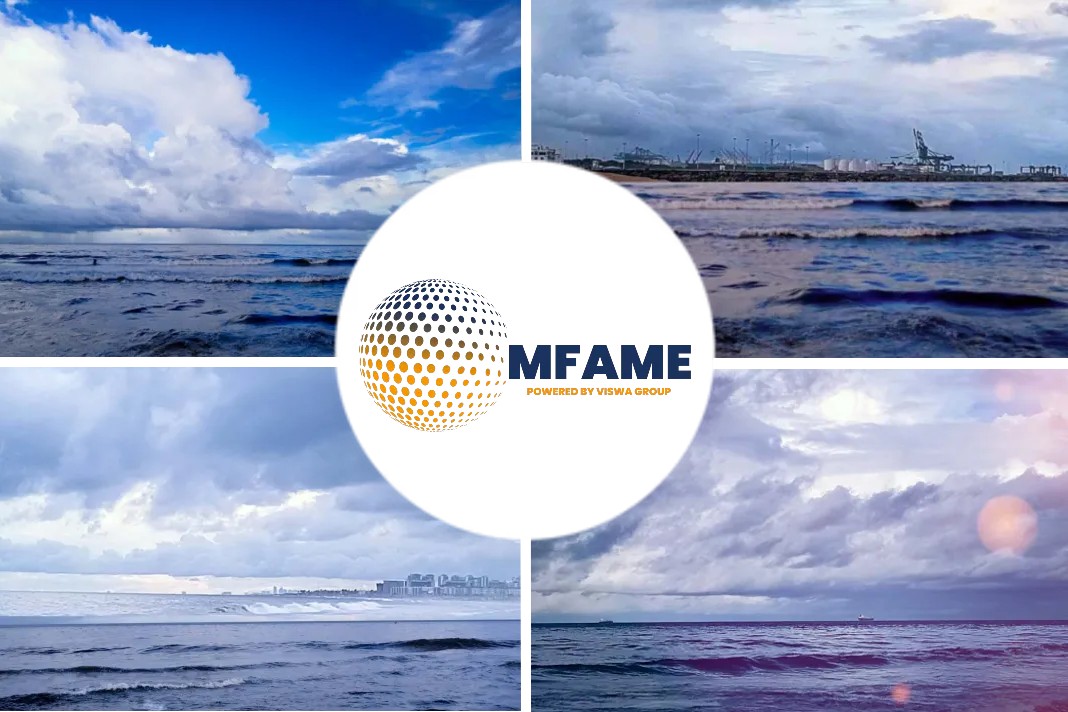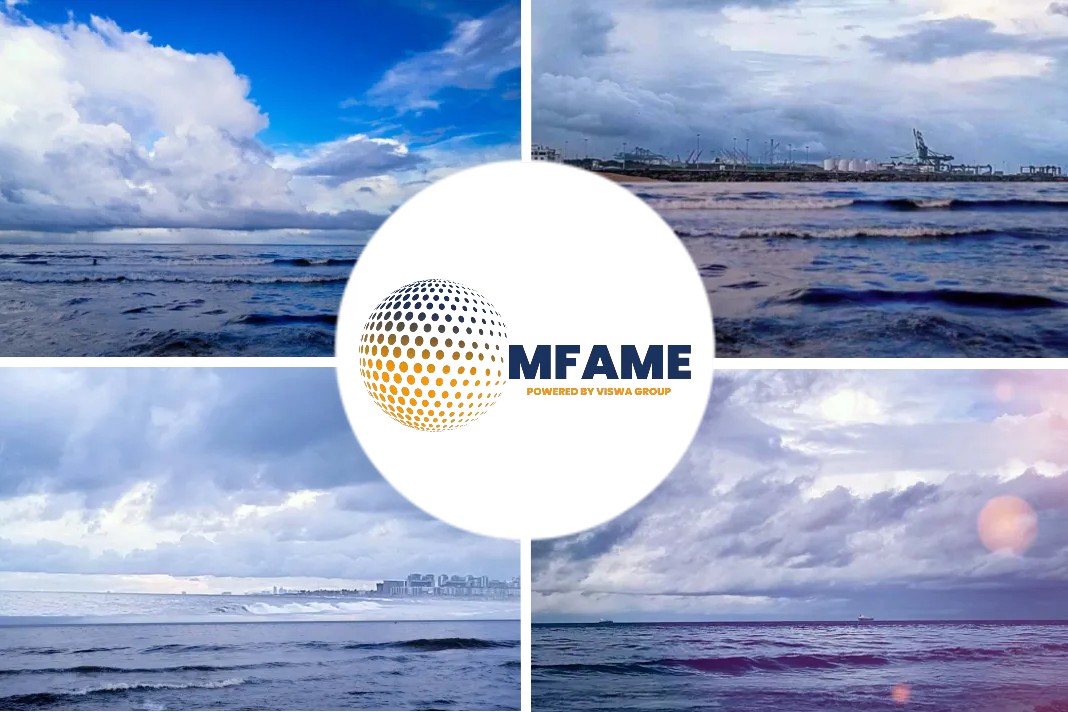- ‘Global economic crisis’ ranked to have potentially the greatest impact on the maritime industry over a ten-year time horizon.
- ‘New environmental regulation’, ‘geopolitical tension’ and ‘cyber-attacks and data theft’ perceived as most likely.
- Industry deemed least prepared for global issues considered to have the biggest impact – although more confident in some financial areas.
The Global Maritime Forum launched its 2019 “Global Maritime Issues Monitor” report addressing shipping’s current issues, from the diversity in maritime workforce to a zero-emission industry, based on the results of a survey of senior maritime stakeholders from 46 countries, reports Safety4sea.
They highlighted the impact of the environmental regulations that are to be in force, piracy issues and the possibility that the global crisis may affect the maritime sector.
Environmental and safety issues
In light of the changing shipping industry, the respondents of the survey were asked a variety of questions, from environmental, to smart and safety issues, addressing the importance of keeping up with the changes and not lagging behind from the perspective of preparedness.
According to the report, in comparison to 2018, respondents feel more confident in dealing with safety incidents as the matter is becoming a priority in shipping’s agenda; Yet, stakeholders feel that there is still room for improvement.
Concerning fuel price increases, respondents are more prepared than 2018, as the upcoming environmental regulations have already pushed the industry to make changes in its fuels.
The report notes, “For many of these issues, it’s likely that the maritime industry is not alone in questioning its preparedness. Every sector is grappling these days with issues related to climate change, cyber-attacks, the ongoing technology revolution, and geopolitical concerns.“
Top issues: The maritime industry is grappling with a vast range of challenges
Environmental, economic, geopolitical, and digital areas attract attention when top issues regarding likelihood, impact and preparedness are compared.
For the second consecutive year, a potential ‘global economic crisis’ is tapped as the issue to have the greatest impact over the next ten years.
It is also the one issue the industry is least prepared for, although it considers the event relatively unlikely. Likewise, ‘cyber-attacks and data theft’ remain a top concern for the industry.
Marcus Baker, Global Head Marine and Cargo at Marsh JLT Specialty says, “Increasingly complex cyber-attacks on critical infrastructure – which are designed to inflict damage or disrupt operations – are at an all-time high.“
He added, “As recent attacks show, highly-skilled hackers have demonstrated the ability to easily penetrate the systems used by the global maritime sector.“
“Respondents to this year’s research are also rightly concerned about their vulnerability to rising geopolitical tensions in certain parts of the world and the increased use of automation and advanced analytical technologies,” he said.
“As an industry, greater collaboration is needed to assess and model the risks surrounding new technologies and evolving risks. We need to learn from best practice in other sectors, if we are to successfully adapt and thrive in the face of these new threats,” says Marcus.
Conversely, respondents show more confidence in 2019 in some financial areas. This year’s respondents are less likely to view ‘insufficient access to finance’ as a significant issue, and its likelihood score dropped to 2.65, down from 3.01 in 2018.
Preparedness remains a key concern
Senior leaders perceive the maritime industry relatively unprepared to deal with all 18 issues surveyed. More worryingly, seven of 10 issues considered to have the biggest impact are among those for which respondents consider the industry to be least prepared.
Richard Turner, President of the International Union of Marine Insurance says, “The maritime industry is not alone in questioning its preparedness for many of the issues in the survey. Most sectors are struggling with issues related to climate change, cyber-attacks, the ongoing technology revolution, and geopolitical concerns.“
He added, “We hope this view of preparedness is taken as a challenge. Our qualitative research indicates that the industry has the power to influence many of the top long-term issues identified, and the expertise and resources to focus on them.”
Deep dive on getting to zero: Availability of zero carbon vessels and fuels is seen as a major barrier to shipping’s decarbonization
The Issues Monitor’s deep dive on ‘getting to zero’ – which looks at six barriers to shipping’s decarbonization – strongly indicates that the availability of zero carbon vessels and fuels is seen as a major barrier to shipping’s decarbonization.
While both issues rank relatively high in perceived impact and likelihood of occurring within the next 10 years, they received the lowest preparedness scores of the entire survey.
“Commercially viable zero emission vessels powered by zero emission fuels must start entering the global fleet by 2030 and their numbers need to be radically scaled through the 2030s and 2040s if international shipping is to meet the target of reducing greenhouse gas emissions by at least 50% by 2050,” says Johannah Christensen, Managing Director, Head of Projects & Programmes at the Global Maritime Forum.
She added, “This represents an unparalleled challenge, but it can be done through close collaboration and deliberate collective action between the maritime industry, the energy sector, the financial sector, governments and IGOs.”
The Issues Monitor also undertakes a deep dive into the theme of ‘workforce of the future’. Overall, survey respondents do not rank workforce-related issues as high for impact, likelihood, or preparedness as they do for other areas.
Respondents say increased automation of jobs and tasks is the most likely to considerably affect the industry in the next 10 years. They also considered it to be the most likely to occur — and the one for which the industry is least prepared.
Zero-emissions future
The Global Maritime Forum saw the most increased scores of unpreparedness when questioning respondents on a zero-emissions future.
Regulatory uncertainty is viewed by respondents as the biggest potential barrier to shipping’s decarbonization in the next 10 years, and is also seen as the most likely to occur and is in the top three for potential impact on shipping’s transition to zero-carbon emissions.
For the time being, zero-carbon fuels and vessels are not yet a reality, and their competitiveness with fossil fuels and vessels remains unclear.
Conclusions
- Environmental and climate related issues jump to the top of decision-makers’ agenda;
- ‘Global economic crisis’ ranked to have potentially the greatest impact on the maritime industry over a ten-year horizon;
- ‘New environmental regulation’, ‘geopolitical tension’ and ‘cyber-attacks and data theft’ perceived as most likely to occur in the next 10 years;
- Industry deemed least prepared for global issues considered to have the biggest impact – although more confident in some financial areas.
Did you subscribe to our daily newsletter?
It’s Free! Click here to Subscribe!
Source: Safety4sea



















